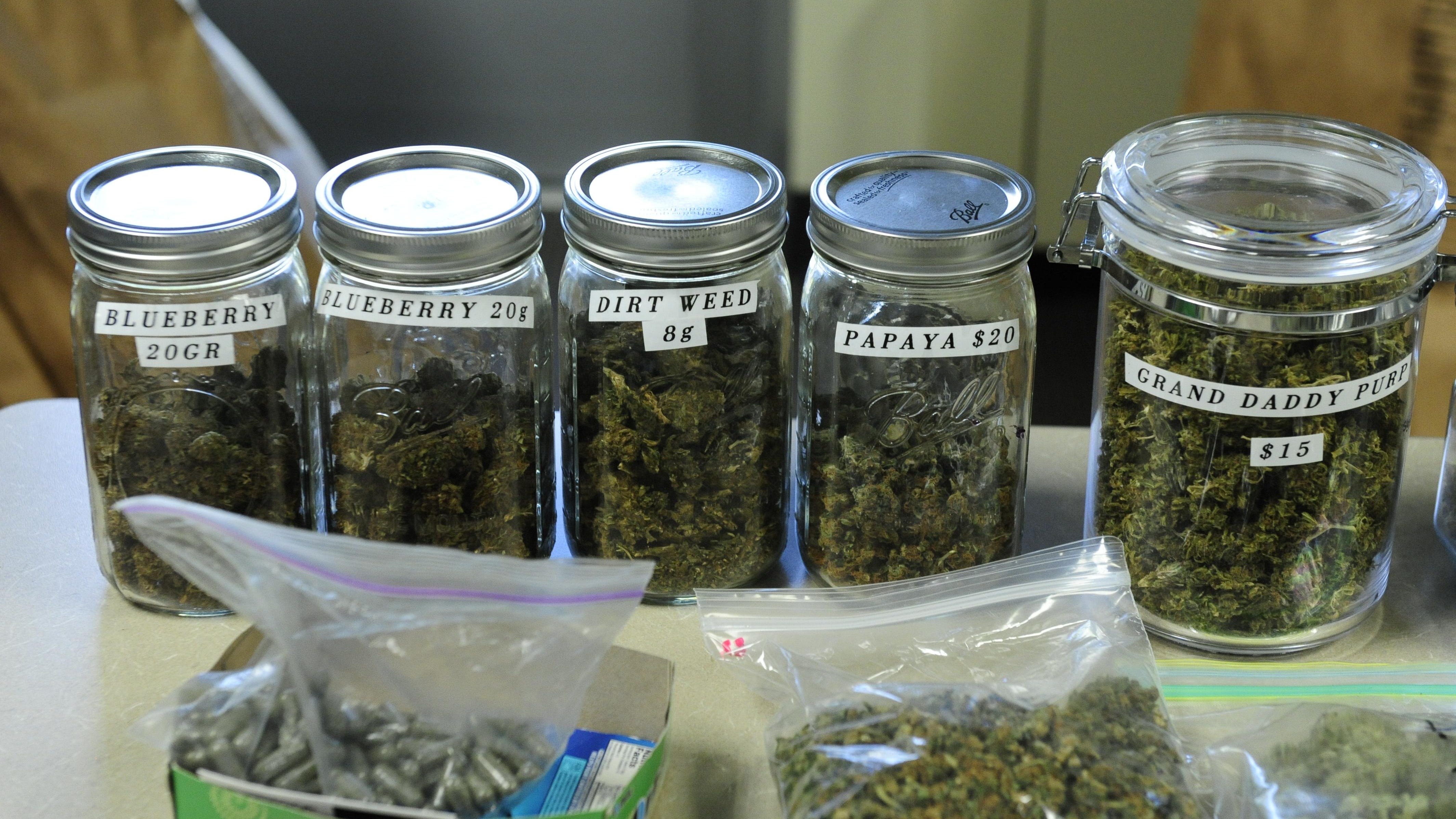Michigan's marijuana use law set to take effect Dec. 6
 Beth LeBlanc
Beth LeBlanc
Lansing — The State Board of Canvassers on Monday made it official: A voter-approved law allowing recreational adult use of marijuana in Michigan is set to take effect Dec. 6.
The proposal approved by nearly 56 percent of voters in the Nov. 6 election allows adults over the age of 21 to possess up to 2.5 ounces of marijuana and grow up to 12 plants per household.
The ballot proposal does not override workplace drug policies, nor does it allow for marijuana consumption or smoking in public places or private locations where the owner forbids it.
Those rules likely will curb the impact of legalization on Dec. 6, said Josh Hovey, a spokesman for the Coalition to Regulate Marijuana Like Alcohol, which backed the statewide proposal.
"People should keep in mind that just because marijuana is legal on Dec. 6, that doesn't mean (you) can spark up a joint in a Hash Bash-style street celebration," Hovey said in an email.
Marijuana use, sale and possession remain illegal under federal law. Officials with the U.S. Attorney's Office in Detroit rarely, if ever, have prosecuted individuals for small amounts of the controlled substance.
"This office will review marijuana cases in terms of where those cases fit within our priorities and our limited federal resources," U.S. Attorney in Detroit Matthew Schneider said in June when asked whether federal resources would be used to make marijuana arrests if recreational pot were legalized in Michigan.
The initiative also allows for licensing of businesses that grow, process, test, transport or sell marijuana with three classes of cultivator licenses. Municipalities would be able to prohibit or limit the number and types of facilities within their boundaries.
The state has another year to develop the framework for recreational marijuana sales, a system that is expected to resemble the state’s regulatory structure for the medical marijuana sales. Permanent rules for medical pot will be taken up starting Tuesday by the Joint Commission on Administrative Rules.
The state Department of Licensing and Regulatory Affairs has met with several stakeholder groups in recent weeks and will continue to meet with them and the new administration to ensure a "safe, efficient and consumer-focused regulatory system," said David Harns, a spokesman for the agency.
"All indications point to our ability to have adult-use license applications available before the statutory deadline of Dec. 6, 2019," Harns said in a statement.
In the meantime, those using marijuana will be in a type of "limbo," Hovey said. They technically can't be charged for having under 2.5 ounces in their possession, but there is also no legal way to obtain it prior to the implementation of the licensing process.
People are allowed to "gift" up to 2.5 ounces but cannot take reimbursement for the product.
"There’s really no other way to do it," Hovey said. "The alternative would be to delay the entire initiative for a year and wait for full legalization to take place.”
Police departments across the state are working with their municipalities to bring local ordinances in line with the new state law, which also decriminalizes marijuana violations, said Bob Stevenson, executive director for the Michigan Association of Chiefs of Police. Decriminalization means violations of the law will be punishable by a citation or fine instead of potential jail time.
Law enforcement agencies are expecting an uptick in drugged driving resulting from the legalization, a violation that is more difficult to prove than drunken driving. Though impaired driving is still prohibited under the law, Stevenson said other states that have legalized recreational marijuana saw a corresponding uptick in impaired driving after legalization.
“We’re expecting that we’ll see the same here in Michigan,” Stevenson said. “That’s our immediate biggest concerns.”
There's no evidence to support large increases in usage in states that have legalized marijuana, Hovey said, though he wasn't surprised that law enforcement would increase their vigilance for impaired drivers. One of the most misunderstood aspects of the law is the strict regulations it carries, he said.
"Businesses will be banned from making products that could be attractive to children or edibles that could be confused with commercially sold candies," Hovey said in an email.
As the realization of the law approaches, several municipalities are opting out of the recreational marijuana industry “to protect themselves from the unknowns going forward,” said Jennifer Rigterink, legislative associate at the Michigan Municipal League. She said communities could revisit the issue once they fully understand the rules and regulations.
“They all know they’re just opting out of the commercial side,” Rigterink said. “Recreational marijuana is here. There’s no getting around that.”
eleblanc@detroitnews.com
(517) 371-3661